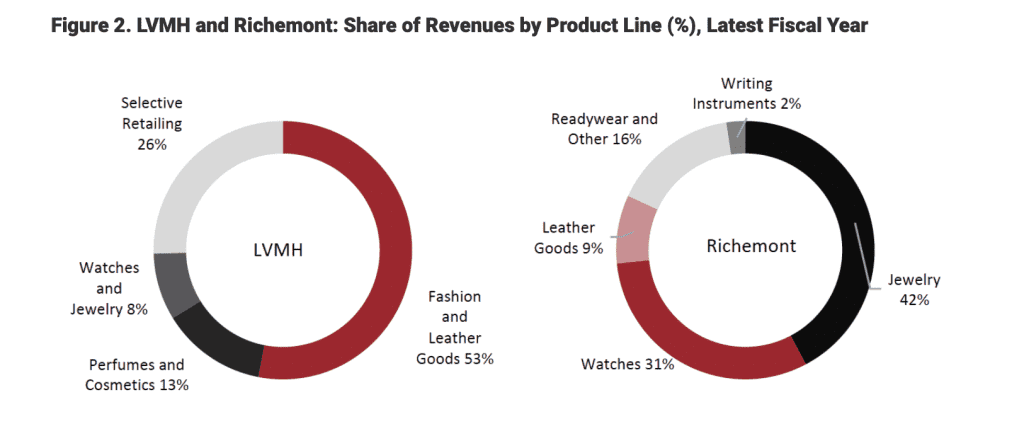On the heels of revealing a “strong start to the financial year” in late July, and pointing to a 129 percent increase in overall sales to $5.19 billion for a first quarter, Richemont announced changes to its board on Thursday. The 33-year-old Swiss conglomerate – which owns Cartier, Piaget, Vacheron Constantin, and Van Cleef & Arpels, and IWC, among an array of other brands – revealed that former Hermès CEO Patrick Thomas will join its board as a non-executive director, as will British businesswoman Jasmine Whitbread, who Richemont notes, has “a long-standing interest in ESG issues.”
In a statement on Thursday, Richemont Chairman Johann Rupert said that he is “delighted to welcome Jasmine and Patrick to the Board,” stating that they “both bring unrivalled experience and expertise in areas of great importance to the Group.” In addition to “Jasmine’s focus on [Environmental, Social, and Corporate Governance],” Rupert asserted that “Patrick’s successful career in soft luxury will be invaluable as we embark on the next stage of our development,” presumably referring to the group’s growing efforts to better compete in the soft luxury space, which is currently dominated by rival conglomerates LVMH Moët Hennessy Louis Vuitton and Kering, as well as companies like Chanel and Hermès.
Currently deriving the bulk of its revenues from hard luxury offerings – 57 percent of its 2021 revenues came from its Jewelry business and 17 percent came from Watches, Richemont has been far less of a presence than its closest rivals when it comes to money-making fashion and leather goods, having only Chloé, Azzedine Alaia, and Dunhill, under its umbrella on the softer luxury front, and very recently adding Belgian leather goods brand, Delvaux. Building out this area has been a focus of the group, which revealed in its 2019 annual report that it is concentrating on “improving sell-through and cash flow, developing capabilities in leather goods and increasing digital reach” when it comes to its Fashion & Accessories maisons.

Comparing Richemont’s revenues to those of industry-leader LVMH, Coresight reported in July that LVMH’s revenues from Fashion & Leather Goods for the 2020 fiscal year amounted to 21.2 billion euros ($25.1 billion) and accounted for about 53.1 percent of its total revenues, up from 46 percent in 2019. Meanwhile, Richemont’s revenues from its leather goods and fashion segments amounted to a significantly smaller 3.2 billion euros ($3.8 billion). On the other hand, LVMH’s Watches & Jewelry division – which consists of Bulgari, Chaumet, Tiffany & Co., Tag Heuer, Zenith, Bulgari, Fred, and Hublot and generated 3.36 billion euros ($3.98 billion) in 2020 – pales in comparison to Richemont’s, which saw the group generate 9.71 billion euros ($11.49 billion) for the full fiscal year.
While the likes of LVMH are shoring up their harder luxury offerings, with the Bernard Arnault-run conglomerate acquiring Tiffany & Co. in October 2020 for $15.8 billion, the largest deal to date for the French group, and Kering rumored to have been looking to bolster its standing in the jewelry and watches segment by merging with Richemont (Mr. Rupert said in January that he rejected the informal, “cash and shares” offer, and “did not submit it” to the Richemont board), the Cartier owner is aiming to bulk up its offerings.
Richemont made headlines in June when it acquired 100 percent of Belgian luxury leather goods maker Delvaux, a move that was widely characterized as signifying its increasing focus on soft luxury. The Delvaux deal, alone, is not expected to enable Richemont to compete with mega-brands like Louis Vuitton or Gucci. Chances are, Richemont will relaunch the brand and ultimately, scale it to become a bigger player in the industry, with more deals to come. At the same time, Richemont is likely to double-down on its e-commerce capabilities, including by expanding upon the $1.1 billion venture it announced in November 2020 with Alibaba and Farfetch.
As for Mr. Thomas, Richemont says that he brings more than 30 years of experience in the luxury goods industry. He was the first and only non-family manager of Hermès, where he served as CEO and led the group’s considerable development from 2003 until 2014, after eight years as COO from 1989 to 1997. He equally held senior positions at Lancaster Group and Pernod Ricard, and is currently the Chairman of the Supervisory Board of Champagne Laurent Perrier, the Chairman of the Supervisory Board of Ardian, the Lead Independent Director of Teleperformance, a Non-executive Director of MycoWorks and a Non-executive Director of Shang Xia, the China-focused fashion brand that Exor N.V. acquired from Hermès late last year.











